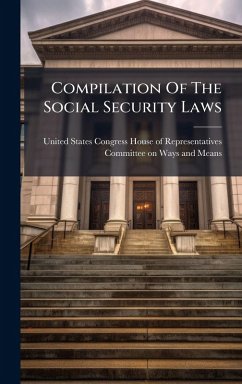
Social Security Reform
Versandkostenfrei!
Versandfertig in 1-2 Wochen
120,99 €
inkl. MwSt.

PAYBACK Punkte
60 °P sammeln!
As population aging has become increasingly acute in many countries, the debate over how to reform often creaking public pension systems has gathered momentum. In many cases, this debate has become politicized and the focus on some of the underlying economic issues has been lost. This volume hopes to redress some of this imbalance. It begins by examining the rationale behind why public pension systems were introduced originally - out of fear that individuals do not adequately save for retirement. It then systematically examines different aspects of reforming these systems. It covers the fiscal...
As population aging has become increasingly acute in many countries, the debate over how to reform often creaking public pension systems has gathered momentum. In many cases, this debate has become politicized and the focus on some of the underlying economic issues has been lost. This volume hopes to redress some of this imbalance. It begins by examining the rationale behind why public pension systems were introduced originally - out of fear that individuals do not adequately save for retirement. It then systematically examines different aspects of reforming these systems. It covers the fiscal repercussions of reform, the implications of the baby boom on asset returns in the years ahead, the political economy of the reform process, and finally the risk-sharing implications that are inherent in reform. An important additional goal of this volume is to make it accessible to as wide an audience as possible: students, academics, and policy makers.














